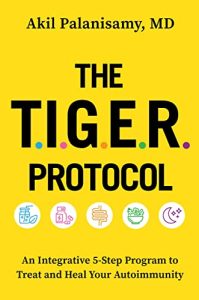 As we work to heal the gut microbiome and reduced intestinal permeability, we also must consider the oral microbiome. This pivotal factor is often overlooked in autoimmune conditions (and other chronic diseases), even though it has powerful effects on dental health and diseases, the gut microbiome, and systemic inflammation.
As we work to heal the gut microbiome and reduced intestinal permeability, we also must consider the oral microbiome. This pivotal factor is often overlooked in autoimmune conditions (and other chronic diseases), even though it has powerful effects on dental health and diseases, the gut microbiome, and systemic inflammation.
Through multiple mechanisms, oral bacteria can play a role in disparate conditions like cardiovascular disease, diabetes, colon cancer, lung infections, brain abscesses, and autoimmunity.i For this reason, the oral microbiome has a substantial impact on the immune system and can sometimes be the missing link in terms of helping a patient with autoimmunity to achieve remission.
The oral microbiome contains the second largest collection of bacteria in the body after the gut, harboring around 6 billion bacteria and over 700 different species.ii Although this microbiome is relatively well-studied, newer more advanced techniques have found that these numbers are likely underestimating the quantity and diversity of bacteria.
We swallow a whopping 1-2 L of saliva per day. Assuming on the low end that we swallow only 1 L per day leads to an interesting calculation. Considering that saliva contains between 800 million to more than 1 billion bacteria/mL,iii that works out to an incredible 800 billion to > 1 trillion oral bacteria swallowed per day – more powerful than almost any probiotic available on the market. And there are no breaks or “days off” from this influx of bacteria – it is a constant and daily occurrence. From this, we can understand how the oral microbiome could have such a significant impact on the gut microbiome and overall systemic inflammation.
A Key Player in Autoimmunity
Porphyromonas gingivalis (P. gingivalis) is an oral bacterium that is involved in the pathogenesis of periodontitis, an inflammatory disease that destroys the gums and can lead to tooth loss. It also plays a key role in rheumatoid arthritis, as these bacteria are potent inducers of immune mediated proinflammatory responses leading to bone damage and systemic inflammation.iv P. Gingivalis is also implicated in rheumatoid arthritis through molecules known as “citrullinated proteins”.
Accumulating evidence suggests a role for autoimmunity against these citrullinated proteins in the development of rheumatoid arthritis. By driving the production of these proteins, this bacteria may contribute to the development of RA. In fact, anti-cyclic citrullinated protein antibodies (anti-CCP antibodies) are the most common rheumatoid arthritis biomarker, found in the blood of most patients with RA. A more recently discovered bacteria, Aggregatibacter actinomycetemcomitans, is also an inducer of citrullinated proteins and is being studied for its role in RA.v
Leaky Mouth Syndrome
The epithelial cells lining the mouth maintain a strong barrier, limiting the entry of microbes and toxins, because the mouth is the gateway to the world and the first line of defense against pathogens. Just as dysbiosis in the G.I. tract contributes to impaired barrier function, oral dysbiosis can lead to increased permeability and the condition of “leaky mouth,” in which inflammation in the oral mucosa caused by dysbiosis and other factors damages the normal barrier, allowing for the entry of bacteria, toxins, and other microbes into the bloodstream. Because the mouth and gums are highly vascular, anything that slips through can easily travel to other parts of the body and cause complications—as with P. gingivalis. A striking example of this permeability was seen in a 9-year-old with celiac disease (an autoimmune disease exacerbated by gluten exposure) who struggled with abdominal pain despite a strict gluten-free diet. She was symptomatic and had positive serum markers for active disease, which indicated she was somehow getting exposed to gluten. The cause for this turned out to be her orthodontic retainer—gluten is a common additive in plastics, and she was absorbing trace amounts orally. Discontinuing use led to resolution of her symptoms and her celiac markers returned to normal. vi
Oral Dysbiosis in Autoimmunity
Dysbiosis in the oral microbiome has been discovered in patients with a number of autoimmune diseases. For example, patients with autoimmune liver diseases such as autoimmune hepatitis and primary biliary cirrhosis exhibit signs of dysbiosis in their oral microbiota with increases in the levels of certain pathogens (overgrowth of harmful bacteria in their mouth).vii Other autoimmune conditions in which changes in the oral microbiome have been identified include Sjogren’s syndrome, systemic sclerosis, systemic lupus erythematosus (SLE) and Crohn’s disease. viii
As we’ve learned, rheumatoid arthritis is also connected with the oral microbiome; studies from Europe, Asia, and Canada have found that patients with rheumatoid arthritis have a distinct oral (and gastrointestinal) microbiome compared to healthy controls. ix
Strengthen Your Oral Microbiome
To support the health of the oral microbiome, teeth, and gums, of course good nutrition is essential. A balanced diet rich in micronutrients, minerals, and essential fatty acids, like the food plan offered in Chapter 10, is the foundation. Adequate intake of calcium, vitamin D, and vitamin K2 support healthy teeth.
Avoid processed sweeteners such as sugar or high fructose corn syrup because simple sugars feed the growth of bad bacteria in both the oral and gastrointestinal microbiome. Processed fructose (anything not found naturally in fruits) increases LPS and intestinal permeability, as we discussed earlier in this chapter.
Good dental hygiene, including daily brushing and flossing are important. Avoid commercial mouthwashes, because the repeated exposure to antibacterial compounds can have detrimental effects on the oral microbiome. Instead, I recommend the Ayurvedic practice of oil-pulling, which I describe below.
Prevent Dry Mouth
Maintaining adequate levels of saliva is crucial because saliva contains enzymes, antibodies, and proteins that help maintain a healthy oral microbiome. Scientists have discovered many vital salivary components that both directly and indirectly prevent dysbiosis in the mouth.x This is why people with dry mouth from insufficient saliva are at higher risk of tooth decay, bad breath, and dysbiosis. In such cases, chewing gum with xylitol, sucking on ice cubes, and increasing water intake can help increase salivary production. A humidifier, especially in your bedroom while you sleep, may help as well.
Breathe Right
Chronic mouth breathing is a major cause of dry mouth. We were designed to breathe through our nose, which will filter and humidify the air we take in. Mouth breathing increases the odds of snoring and dries out the mouth, which can contribute to dysbiosis – especially if it occurs for prolonged periods such as during sleep. If you regularly wake up with bad breath or dry mouth, it’s likely you are breathing through your mouth overnight.
If this is the case, you might try mouth taping, which is a simple solution that can have big benefits. Immediately before bed, apply petroleum jelly to your lips and place a piece of hypoallergenic tape horizontally across both your lips. There are brands of tape made specifically for this purpose; however, you can also use paper tape, the kind of you might find in a first-aid kit. Many of my patients who swear that this technique dramatically improves their sleep quality. There aren’t many available studies on mouth taping, but it is inexpensive and easy to try, and relatively safe. I recommend it only because it can reduce dry mouth as well as gum disease, throat infections, bad breath, and oral dysbiosis.
Green Tea – A True Superfood
When it comes to supporting the oral microbiome, one beverage requires special mention: green tea. Most widely known for its antioxidants and cardiovascular benefits, green tea contains polyphenols (dietary antioxidants) that serve as beneficial prebiotics for both the oral and intestinal microbiota. Studies show that drinking green tea regularly improves heart disease risk profiles and reduces the risk of dying from cardiovascular disease by up to 31%. xi It also has benefits in preventing diabetes, metabolic syndrome and colon cancer. xii
But green tea also has numerous benefits for the oral and gut microbiome. Studies show that two cups of green tea daily improve the diversity of the salivary microbiome in healthy adults, and increases Ruminococci and Bifidobacteria in the gut as well as Roseburia, Feacalibacterium, and Eubacterium – which produce beneficial metabolites called short chain fatty acids (SCFAs). xiii
The medicinal properties of green tea likely stem from antioxidants known as catechins; to boost your daily intake of these powerful compounds, add a quarter teaspoon of matcha green tea powder—which is very high in catechinsxiv—to your daily cup of green tea.
Lab studies have confirmed that green tea inhibits the growth of oral bacteria.xv Likely as a result of this, studies also show that it reduces bad breath.xvi Swishing green tea around in your mouth before swallowing is a good way to add oral benefits to the many systemic benefits of this healthy beverage.
Oil Pulling and Tongue Scraping
There are a variety of other practices that can be beneficial to your oral microbiome. Oil pulling, in which you swish oil around in your mouth for about 5-10 minutes and then discard it, is an Ayurvedic practice that supports the oral microbiome. Ayurveda believes that oil pulling can prevent tooth decay, gum disease, and bad breath. Studies have confirmed that regular oil pulling with coconut oil is able to significantly reduce levels of bacteria in the saliva, and also reduce plaque levels, thus improving dental health and cutting down on the harmful bacteria that can lead to autoimmunity. xvii
Tongue scraping, another traditional technique, is also beneficial. This can be done with either with a toothbrush or with a tongue scraper and helps to clear excess bacteria from the tongue and removes the buildup of tongue coating, if present. Tongue scraping has been shown to improve periodontal markers and reduce markers of inflammation in the gum tissues. xviii
In Ayurveda, the tongue is a microcosm for the entire G.I. tract, so in that tradition, tongue scraping is believed to provide a gentle stimulation and “internal massage” to all the digestive organs.
Testing for and Treating Dysbiosis
Caring for the oral microbiome and preventing dental dysbiosis is important for helping keeping the immune system balanced. If you suspect you might have oral dysbiosis, look for the following clues: bad breath, gingivitis, tooth decay, or other periodontal diseases.
If you are asymptomatic but suffer from autoimmunity, it’s still a good idea to test your oral bacteria. Newer salivary tests for pathogenic bacteria such as P. gingivalis are available from companies like OralDNA and others – but talk to your dentist about whether such a test is right for you. If you do have high levels of potentially deleterious oral bacteria, consider using antimicrobial toothpastes such as Dentalcidin or PerioBiotic to help address the dysbiosis.
i M. Kilian et al., “The Oral Microbiome – An Update for Oral Healthcare Professionals,” British Dental Journal 221 (November 18, 2016): 657-666, https://doi.org/10.1038/sj.bdj.2016.865.
ii Priya Nimish Deo and Revati Deshmukh, “Oral Microbiome: Unveiling the Fundamentals,” Journal of Oral and Maxillofacial Pathology 23, no. 1 (January-April 2019): 122-128, https://doi.org/10.4103/jomfp.JOMFP_304_18. iii Elijah O. Oyetola et al., “Salivary Bacterial Count and its Implications on the Prevalence of Oral Conditions,” The Journal of Contemporary Dental Practice 20, no. 2 (February 1, 2019): 184-189, https://pubmed.ncbi.nlm.nih.gov/31058633/.
iv Carol Perricone et al., “Porphyromonas gingivalis and Rheumatoid Arthritis,” Current Opinion in Rheumatology 31, no. 5 (September 2019): 517-524, https://doi.org/10.1097/BOR.0000000000000638.
v Eduardo Gómez-Bañuelos et al., “Rheumatoid Arthritis-Associated Mechanisms of Porphyromonas gingivalis and Aggregatibacter actinomycetemcomitans,” Journal of Clinical Medicine 8, no. 9 (September 2019): 1309, https://doi.org/10.3390/jcm8091309.
vi Zebunnissa Memon et al., “An Orthodontic Retainer Preventing Remission in Celiac Disease,” Clinical Pediatrics (Philadelphia) 52, no. 11 (November 2013): 1034-1037, https://doi.org/10.1177/0009922813506254.
vii Kazumichi Abe et al., “Gut and Oral Microbiota in Autoimmune Liver Disease,” Fukushima Journal of Medical Science 65, no. 3 (January 9, 2020): 71-75, https://doi.org/10.5387/fms.2019-21.
viii Nikolaos G. Nikitakis, “The Autoimmunity-oral Microbiome Connection,” Oral Diseases 23, no. 7 (October 2017): 828-839, https://doi.org/10.1111/odi.12589.
ix Ashutosh K. Mangalam, Meeta Yadav, and Rjwardhan Yadav, “The Emerging World of Microbiome in Autoimmune Disorders: Opportunities and Challenges,” Indian Journal of Rheumatology 16, no. 1 (March 23, 2021): 57-72, https://doi.org/10.4103/injr.injr_210_20.
x Kilian, “The Oral Microbiome,” 657-666.
xi Shinichi Kuriyama, “The Relation between Green Tea Consumption and Cardiovascular Disease as Evidenced by Epidemiological Studies,” The Journal of Nutrition 138, no. 8 (August 1, 2008): 1548S-1553S, https://doi.org/10.1093/jn/138.8.1548S.
xii Sabu M. Chacko et al., “Beneficial Effects of Green Tea: A Literature Review,” Chinese Medicine 5 (April 6, 2010): 13, https://doi.org/10.1186/1749-8546-5-13.
xiii Xiaojie Yuan et al., “Green Tea Liquid Consumption Alters the Human Intestinal and Oral Microbiome,” Molecular Nutrition & Food Research 62, no. 12 (June 2018): 1800178, https://doi.org/10.1002/mnfr.201800178.
xiv David J. Weiss and Christopher R. Anderton, “Determination of Catechins in Matcha Green Tea by Micellar Electrokinetic Chromatography,” Journal of Chromatography A 1011, no. 1-2 (September 5, 2003): 173-180, https://doi.org/10.1016/s0021-9673(03)01133-6.
xv J. Steinmann et al., “Anti-infective Properties of Epigallocatechin-3-Gallate (EGCG), a Component of Green Tea,” British Journal of Pharmacology 168, no. 5 (March 2013): 1059-1073, https://doi.org/10.1111/bph.12009.
xvi Parth Lodhia et al., “Effect of Green Tea on Volatile Sulfur Compounds in Mouth Air,” Journal of Nutritional Science and Vitaminology (Tokyo) 54, no. 1 (February 2008): 89-94, https://doi.org/10.3177/jnsv.54.89.
xvii Oghenekome Gbinigie et al., “Effect of Oil Pulling in Promoting Oro Dental Hygiene: A Systematic Review of Randomized Clinical Trials,” Complementary Therapies in Medicine 26 (June 2016): 47-54, https://doi.org/10.1016/j.ctim.2016.02.011.
xviii Buket Acar et al., “Effects of Oral Prophylaxis Including Tongue Cleaning on Halitosis and Gingival Inflammation in Gingivitis Patients: A Randomized Controlled Clinical Trial,” Clinical Oral Investigations 23, no. 4 (April 2019): 1829-1836, https://doi.org/10.1007/s00784-018-2617-5.
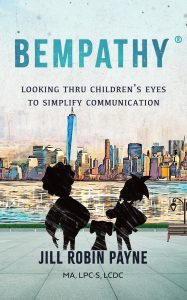 Guest post by Jill Robin Payne, LPC-S, LCDC
Guest post by Jill Robin Payne, LPC-S, LCDC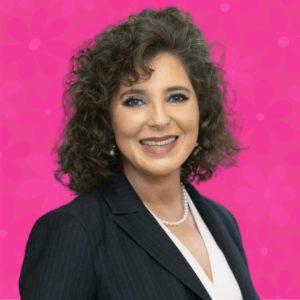










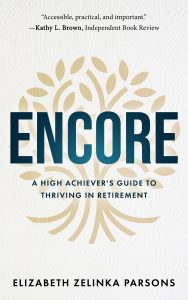
 About the author: Elizabeth Zelinka Parsons, J.D., is a Retirement Transition Expert, lawyer, and co-founder of two consulting firms, Zelinka Parsons and Encoraco. A magna cum laude graduate of Georgetown University Law Center and summa cum laude graduate of James Madison University, Elizabeth has spent over two decades shaping professional development and transition strategies for legal professionals. A former attorney at Milbank, she built a national consulting firm assisting AmLaw 100 firms with talent solutions. Author of “Encore: A High Achiever’s Guide to Thriving in Retirement ” (Feb. 5, 2025), Elizabeth combines analytical rigor with creative vision to help professionals redefine retirement as a dynamic opportunity for growth and fulfillment. Learn more at
About the author: Elizabeth Zelinka Parsons, J.D., is a Retirement Transition Expert, lawyer, and co-founder of two consulting firms, Zelinka Parsons and Encoraco. A magna cum laude graduate of Georgetown University Law Center and summa cum laude graduate of James Madison University, Elizabeth has spent over two decades shaping professional development and transition strategies for legal professionals. A former attorney at Milbank, she built a national consulting firm assisting AmLaw 100 firms with talent solutions. Author of “Encore: A High Achiever’s Guide to Thriving in Retirement ” (Feb. 5, 2025), Elizabeth combines analytical rigor with creative vision to help professionals redefine retirement as a dynamic opportunity for growth and fulfillment. Learn more at 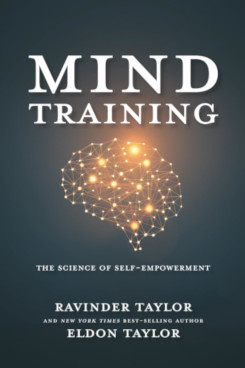
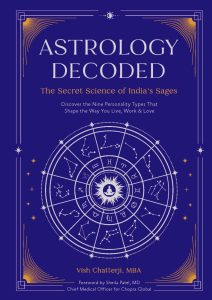 Excerpt from pages 36-38, Astrology Decoded: The Secret Science of India’s Sages, Vish Chatterji MBA, Mandala Publishing, Oct. 29, 2024
Excerpt from pages 36-38, Astrology Decoded: The Secret Science of India’s Sages, Vish Chatterji MBA, Mandala Publishing, Oct. 29, 2024
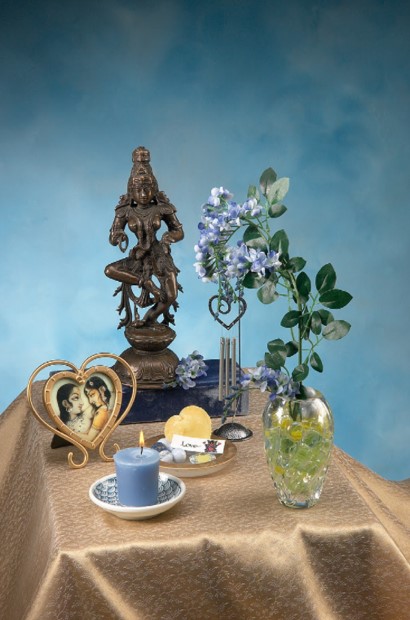
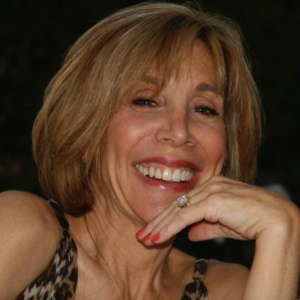


 BIOGRAPHY
BIOGRAPHY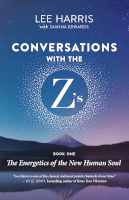 An Excerpt from Conversations with the Z’s, Book One by Lee Harris
An Excerpt from Conversations with the Z’s, Book One by Lee Harris Lee Harris is the author of
Lee Harris is the author of